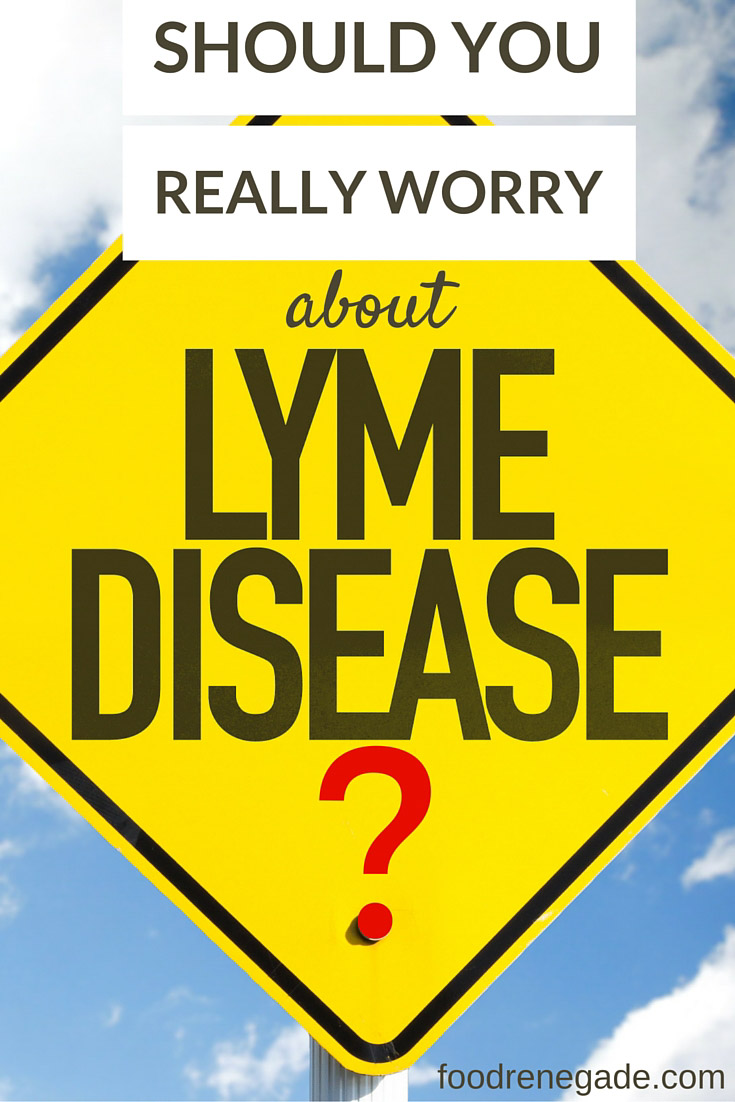
Last month, I wrote about signs you may need the GAPS intro diet. Now, I’m talking about my battle with chronic Lyme disease: my reason for doing the GAPS intro diet.
If you feel like you’ve done so much to heal your body, but you’re still not feeling great. You’re not alone; that’s exactly how I felt six months ago!
After suffering from joint pain, migraines, chronic fatigue, food sensitivities, and digestive abnormalities since I was about 13, I overhauled my diet about five years ago. Once I removed grains and refined sugars, I felt a lot better, but I knew I didn’t feel as good as I should. Then I came across chronic Lyme disease, I knew it must be at the root of my problems.
Growing up in the country with lots of animals, I was bitten by ticks many times as a kid. I could even remember having the classic bull’s eye rash at one time. However, trying to get chronic Lyme disease diagnosed more than 15 years after the fact is not so simple. It took me trying out several doctors before I found one that could properly test, diagnose, and treat me.
Today, I’m feeling so much better, but it’s taken a little work to get here. You can read about how I’m recovering from chronic Lyme disease.
What is chronic Lyme?
The CDC estimates around 300,000 people are diagnosed with Lyme each year. (source) These estimates do not take into account those suffering from chronic Lyme. Chronic lyme, known by conventional medicine as “post-treatment Lyme disease” (PTLD), occurs when either Lyme disease goes untreated or when treatment is not sufficient and symptoms persist.
Lyme disease is caused by a bacteria called Borrelia burgdorferi, which is transmitted by infected ticks. It’s also been discovered that Lyme may be transmitted by mosquitoes and other insects, as well as sexual intercourse, and from mother to fetus in vitro or through breast milk.
What are the symptoms of chronic Lyme?
While symptoms of acute Lyme disease include fever, chills, and body aches, sometimes accompanied by the well-known erythema migrans (bull’s eye) rash; symptoms of chronic Lyme actually mimic many other better-known diseases, including arthritis, multiple sclerosis, fibromyalgia, chronic pain and fatigue, and even depression (and may in fact, be the underlying condition behind those diseases).
Symptoms may include:
- joint pain
- migraines
- sleep disturbances
- chronic fatigue
- heart conditions
- digestive abnormalities
- neurological disturbances
- food intolerances
How do you know if you have chronic Lyme?
The test, called a Western Blot, can be unreliable and is expensive. The typical CDC- recommended test for Lyme disease is not sensitive enough, and most doctors don’t know how to properly read a Western Blot or give a diagnosis of chronic Lyme disease. In fact, many conventional doctors don’t believe that chronic Lyme disease even exists.
Instead, a good Lyme literate medical doctor (LLMD) should be able to give a clinical diagnosis based on symptoms or direct you to the right test.
What if you find out you have chronic Lyme?
Instead of obsessing over every symptom (guilty) or thinking of yourself as “sick” (also guilty, though the name “Lymie” never sat well with me), remain calm. I knew that having a positive Western Blot didn’t change anything, but I let it get in my head. Once I had time to process the information, I knew I really was already on the right track to healing my body.
A balanced approach to treating chronic Lyme disease
If you have symptoms of chronic Lyme disease, you may be dying to get a test done, get a diagnosis, and begin treatment. I felt the same way. However, you will not be doing yourself any favors if you are chomping at the bit to treat for Lyme before you begin to strengthen and heal your body from the bottom up.
Even after doing the GAPS diet and sticking with a natural lifestyle for years, the minute I started treating my chronic Lyme with herbals I felt awful. All of my symptoms got worse and I even had new symptoms pop up, like a massive anxiety attack after I tried only one drop of one herbal treatment.
I knew that, despite how badly I just wanted to treat the illness and get on with my life, this was not a good approach. I decided to drop all herbal treatments and just focus on healing my body and immune system.
I finally understood the idea that “You can’t kill your way to health.” (Dr. Tim Jackson, quoting one of his mentors.)
If you are suffering from chronic Lyme, there are a few things you should know:
Chronic Lyme is not the problem. Lyme disease isn’t the reason you’re sick; your immune system is the problem. When your immune system is strong, it keeps a variety of pathogens in check so that you do not suffer from symptoms. Our modern diet, overuse of pharmaceuticals, and dirty air and water have suppressed our immune systems to the point that some of us just can’t fight off pathogens like Lyme.
Lots of people have chronic Lyme and don’t know it. Because our immune systems determine whether or not we suffer from symptoms of Lyme disease, some people will contract Lyme disease but never show symptoms because they have a healthy immune system.
You have more control than you think. So many people seem to become enslaved to their diagnoses and, believe it or not, choose feel sick. Once I stopped obsessing about my symptoms, many of them went away. Changing the way you think really can change the way you feel.
You can get better. Chronic Lyme disease sucks. The symptoms can be debilitating and make life hard to enjoy, but you have to take baby steps to begin feeling better. (To start with diet, learn more about Paleo, Primal, and WAPF diets.) You can read more about how I’m feeling better and kicking chronic Lyme disease’s butt.
Should you worry about chronic Lyme disease?
Whether you have symptoms of chronic Lyme or have confirmed it via testing, your goal should be the same as if you had any other disease. You need to heal your immune system, which is found primarily in your gut, so that your immune system can bring everything into balance.
Dr. Natasha Campbell-McBride, author of the book, Gut and Psychology Syndrome, sums it up well:
“People who suffer from chronic fatigue, fibromyalgia, peripheral neuropathy, autoimmunity and other degenerative conditions, recently blamed on Lyme disease, are immune-compromised. The fact that Borrelia has been discovered by our science does not mean that it is the answer to these problems: when the immune system is disabled, all sorts of microbes can be at work, many of which we have not even discovered yet…
So, if you suffer from a chronic degenerative condition and had a positive test for Lyme disease, don’t rush to have antibiotics. What you need to rush to do is to restore your immune system. Number one intervention is the food you eat!” (source, emphasis mine) You can read my thoughts on it too.
So, while it doesn’t hurt to have information, the current hysteria surrounding chronic Lyme disease isn’t warranted. As with all chronic disease, we need to focus on healing our bodies through nutrition first and foremost.
Please share this post with one of our links, so others can understand that chronic Lyme isn’t a death sentence!

Image credit: gustavofrazao
 |
















Hi! It’s so cool to see another food blogger talking about Lyme Disease! My mom has chronic lyme, and I have been battling something similar myself. With the proper care and a good diet, both my mom and myself are on the road to recovery!